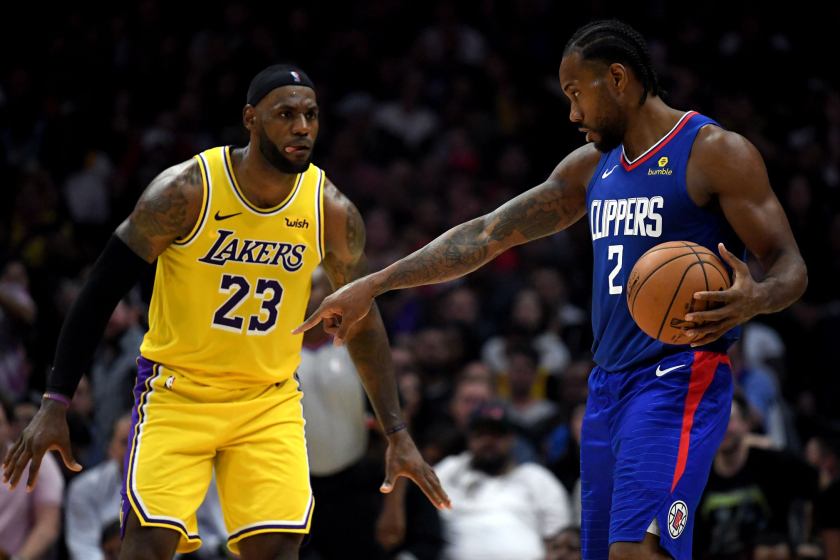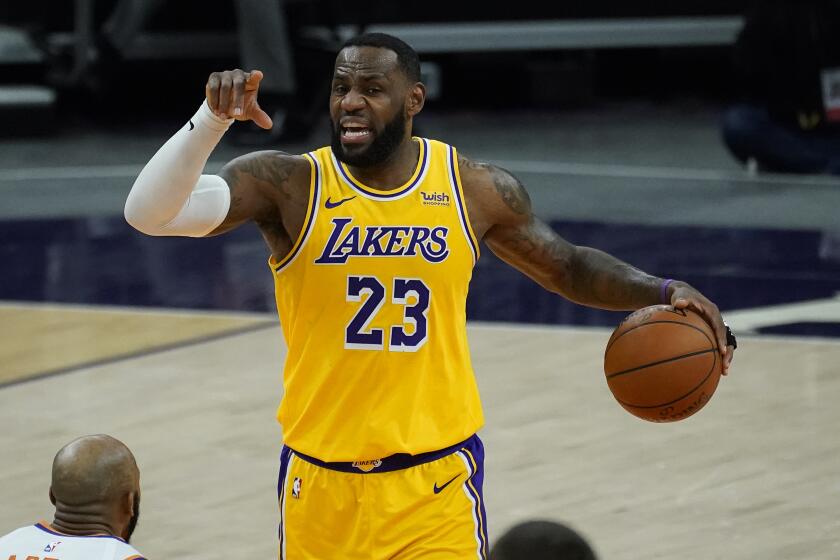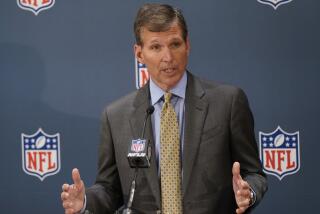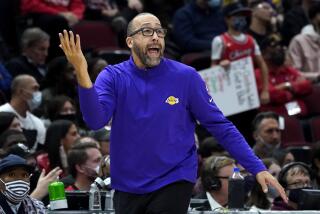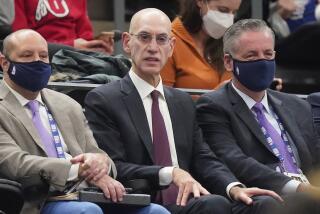What’s next when the NBA opens new pandemic season? Expect some chaos
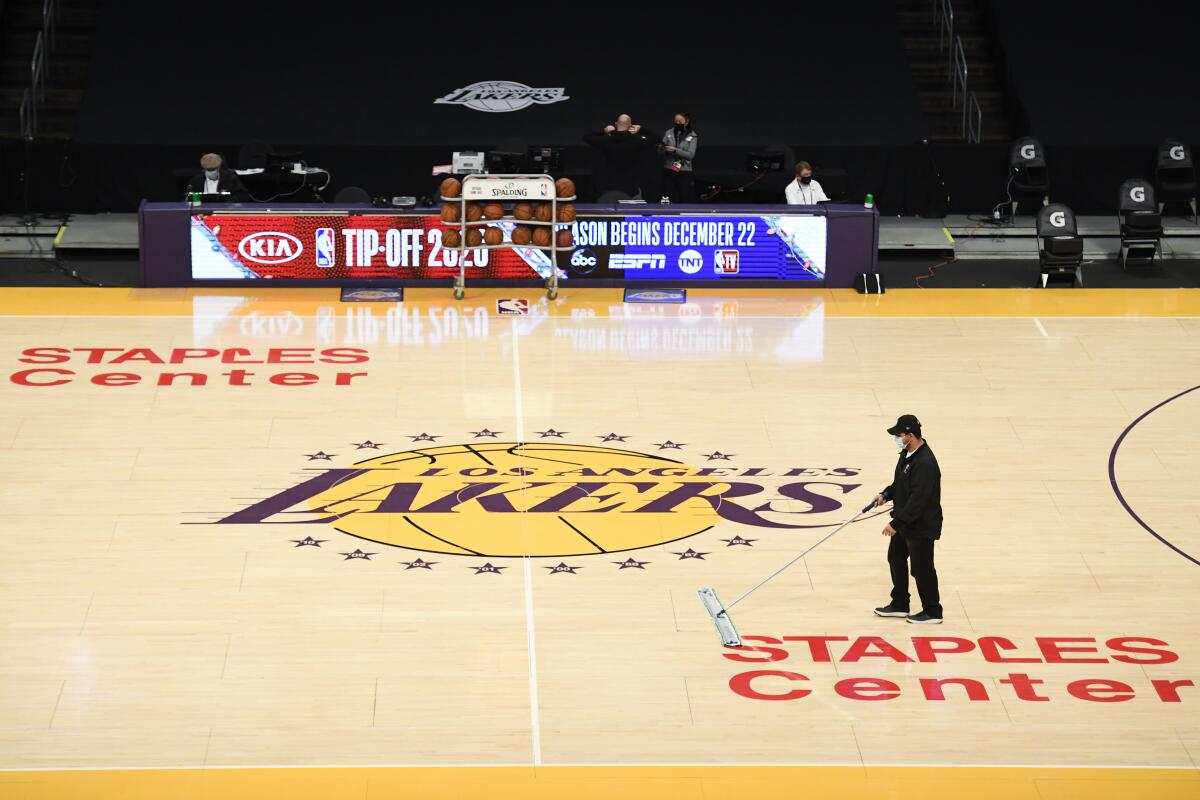
Since the college basketball season began in November, Stu Jackson’s life has revolved around a Google Doc and Excel spreadsheet in which the Big East Conference updates its master schedule. Daily edits have become routine, the result of pandemic-related postponements.
Only last week Jackson, the executive associate commissioner overseeing men’s basketball in a conference whose universities play in 11 government jurisdictions, following 11 different sets of local COVID-19 regulations, spent an entire day rescheduling 12 games for January and February.
“As crazy as things have been, we’ve played 78% of our games,” Jackson said. “Getting a C-plus in this environment isn’t bad.”
Challenging logistics are nothing new for Jackson, who oversaw NBA scheduling as part of his 13 years working inside the league’s New York headquarters. Last summer he watched from afar, impressed as the NBA set what he called the “gold standard” for playing amid a pandemic when it revived and finished its season near Orlando, Fla., inside a single-site “bubble.”
Two months after the Lakers left a mostly empty Disney World arena as NBA champions, however, the new season that begins Tuesday poses no less of a daunting challenge — nudging the league back toward something approaching normalcy. There will be road trips, games in home markets and the freedom to live around family and friends.
The accomplishment of the bubble can help only so much when the NBA is no longer operating within one, Jackson said.
“They’re going to experience what we’re experiencing on steroids,” Jackson said. “I spoke to a former colleague of mine at the NBA just the other day and my comment to him was, ‘Brace yourself.’”
From the expected load management to the unknown of a pandemic-stricken season with no bubble protection, the 2020-21 NBA season will offer unique challenges.
The NBA’s plan has worked thus far. Though 48 out of 546 players tested positive for the coronavirus upon their return for training camp, and a handful of teams briefly paused workouts because of infections, preseason games have been played without interruption since Dec. 11.
One team executive described little conflict among his peers about whether playing games despite skyrocketing numbers of infections across the country is the right decision, citing the NBA’s preparation. Teams were issued nearly 160 pages of health and safety protocols this month.
And yet, the executive said, “do I think all 72 will be played for every team? No.”
“When we went to Orlando, our expectation was that it was possible that we would have cases and that we would have to manage those and obviously that was as successful as we could have dreamed,” said David Weiss, the NBA’s senior vice president of player matters. “Now our expectation is that we’re going to have cases and we’ll have to manage those, especially given the backdrop of the country.
“But we’ve worked closely with the players association and our doctors to find a way we think is safe to do this and appropriate to do this. That’s why we’re trying to do it.”
The NFL, with active rosters more than three times the size of the NBA’s, has played its full season even if some games have required multiple postponements. But football schedules have longer breaks between games, and visiting teams are rarely away from home for long.
NBA teams will regularly play four times each week. A Lakers road trip in January will reach seven cities. The league intentionally factored in uncertainty by releasing only the first half of each team’s schedule so makeup games could be added after the All-Star break in February, but in a survey of NBA general managers conducted by the league, 21% listed travel protocols and safety on the road as the season’s biggest challenge.
“Looking around at other sports, I don’t think there’s any way this season goes off the way it’s scheduled to, which probably isn’t a shock,” one agent said. “I think it’s going to be a total mess.”
Said Clippers coach Tyronn Lue: “You still may contract COVID even if you’re doing the right things. So we just gotta stay locked in, understand what we’re trying to do, understand what the protocol is, and after that, it’s in God’s hands.”
In a season featuring innumerable variables, two of the most important are how quickly a vaccine can be obtained and how widely it will be taken.
The champion Lakers have reloaded, getting younger while LeBron James gets older and Anthony Davis enters his prime, which makes them the favorite to repeat.
Having been broadsided by criticism last summer for regularly testing teams at a time when the availability of testing nationwide was limited, the NBA is seen as interested in using its star power and credibility to boost vaccine awareness and education efforts nationwide but in no rush to jump the line for its own doses.
Once a vaccine is deemed “safe and effective,” the NBA and players union will discuss whether receiving the vaccine will be required, according to the league’s health and safety protocols, but a mandate isn’t expected to be reached.
“I don’t think there will be a huge backlash” to receiving the vaccine, the agent said. “These guys want to be able to go out on the road, to get some sense of normalcy. I haven’t gotten the sense that players have conspiracy theories or fears. It’s more of, do I need to get it if I already had COVID?
“The NBA will have to put some work into it to convince guys. But the league will say, ‘look, do you want fans in the stands?’”
The focus on players’ well-being goes beyond COVID-19. Among playoff teams that just went through the shortest offseason in NBA history, there is some concern over the potential prevalence of soft-tissue injuries.
Yet T.O. Souryal, a former team doctor of the Dallas Mavericks for 22 years, said his conversations with NBA physicians in recent weeks have suggested greater concern with how teams will continue operating in the case of new infections. League protocols require a 10-day wait to resume exercising for those who test positive.
“It’s going to look more like the NFL has looked, where you may have several players not available from time to time,” Souryal said. “And on an NBA roster that’s a much bigger issue.”
With revenue whittled away by empty arenas — the NBA reportedly fell $1.5 billion short of its projections last season — Weiss said the league’s goal is to play in front of as many fans as is safe. Seven teams have announced they will host fans at home games to start the season.
Anthony Fauci, the nation’s top infectious disease expert, told NPR that the U.S. could reach the early stages of herd immunity by late spring or summer, which could be around the time the postseason is scheduled to begin in late May.
“The news on the vaccines has been as good as anyone could have hoped,” Weiss said. “We’re hoping that means things will get back to normal more quickly.”
But “normal” will come with caveats. Prepackaged foods will be served on charter flights, with no more than 12 people per bus once on the ground. Visits to large indoor gatherings, bars, lounges and clubs, fitness centers, entertainment venues and pool halls are prohibited on the road, though under specific conditions, an exception can be made for casinos. Teams can eat out, but only outside at preapproved restaurants.
Such granular recommendations are the result of the NBA’s partnership with “some of the best medical experts in the world,” Weiss said. “That’s what we do, all day every day, to keep the league going and everybody as safe as possible.”
Jackson knows the power of an exhaustive plan covering every conceivable scenario under a travel format. He also has a spreadsheet and a Google Doc that reveal how difficult it can be to pull off.
“When you get a positive test and that player goes to practice or is around his team, the repercussions are pretty far-reaching if you don’t have knowledge of a positive test at that time and find out after the fact,” he said. “That’s when the chaos of decisions begins. I imagine that the NBA will undergo some of that.”
More to Read
Go beyond the scoreboard
Get the latest on L.A.'s teams in the daily Sports Report newsletter.
You may occasionally receive promotional content from the Los Angeles Times.

